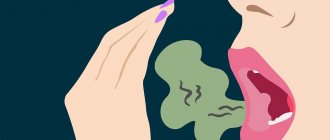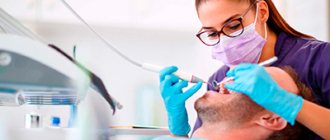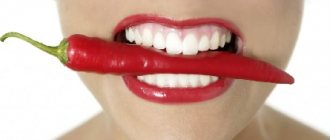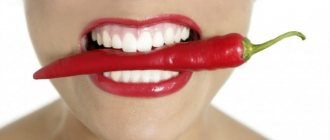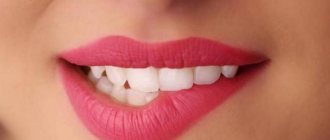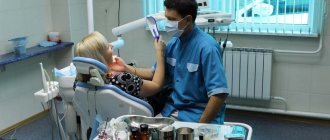Nocturnal acid reflux: how to stop it?
If you experience acid reflux at night, you may want to make a few dietary and lifestyle changes.
For example, because standing up helps with digestion, doctors recommend eating dinner a few hours before bed. Doctors also recommend raising the head of the bed to prevent gravity from moving food from the stomach into the esophagus.
If you suffer from this condition frequently, you may need medical help.
Research suggests that the hormone melatonin or medications with similar effects may reduce symptoms.
In this article, we will discuss the symptoms, causes, and treatment of acid reflux at night. We will also describe some methods for preventing and managing reflux.
Bitterness in the mouth during pregnancy
The taste of bile in the mouth is familiar to many pregnant women. It can appear either at the beginning of pregnancy or closer to the second half of the term. Sometimes the cause of bitterness is diseases of the biliary system that a woman had before conception.
In healthy women, the symptom occurs against the background of hormonal changes in the initial period of pregnancy, during an active increase in the size of the uterus due to pressure on the intestines, stomach, and bile ducts.
Regardless of the cause of bitterness in the mouth, you should not take medications to eliminate it without consulting a specialist. If the taste of bile has become intrusive, the doctor will recommend the appropriate medicine. Often the problem disappears on its own after childbirth.
Acid reflux: symptoms
Acid reflux, also known as heartburn, typically involves a burning sensation in the stomach, chest, and throat.
Other possible symptoms include:
- difficulty swallowing
- chest pain
- nausea
If the condition occurs regularly, it may indicate gastroesophageal reflux disease (GERD).
Trying to sleep
The International Foundation for Gastrointestinal Disorders (IFFGD) notes that 79% of people with GERD symptoms experience them during sleep.
75% of people with the condition say symptoms affect their sleep, and 40% say loss of sleep affects their ability to get up.
Although GERD affects sleep, sleep deprivation also affects GERD. Lack of sleep can cause the esophagus to become more sensitive to acid.
Acid reflux that occurs after sleep has more severe symptoms than daytime acid reflux.
This combination of sleep disturbances and more severe symptoms means that acid reflux affects the quality of life of people with the condition.
Symptoms of bile ingestion
The bitter taste of bile in the mouth is not the only sign of fluid reflux. People with reflux suffer from heartburn. Pain in the upper part of the stomach occurs at night or after a sudden change in body position.
When bending over, doing physical activity, and soon after a person moves from a vertical to a horizontal position, a feeling appears as if there is a burning and pinching sensation in the larynx. In the mornings, it seems that my throat begins to hurt.
After eating, nausea occurs, and less often, attacks of vomiting (bile is mixed into the masses). Filling the stomach with food or liquid causes hiccups.
Acid reflux: causes
Acid reflux occurs when stomach contents flow into the esophagus. This occurs due to weakening of the esophageal sphincter.
The sphincter is a muscle that acts like a valve. It relaxes, allowing the swallowed food to enter the stomach. It then closes to prevent food from moving in the opposite direction. If the sphincter is weak, it may not function properly.
Why does the sphincter weaken?
Various factors can weaken the lower esophageal sphincter or cause it to relax when it should remain closed.
According to the National Institute of Diabetes and Digestive and Kidney Diseases (NIDDK), these factors may include:
- smoking
- obesity
- pregnancy
- hiatal hernia
- certain medications, such as nonsteroidal anti-inflammatory drugs and some medications that doctors use to treat depression
Symptomatic therapy
You can reduce discomfort and the secretion of bile with the contents of the stomach by adjusting your diet. To reduce the frequency of vomiting, it is necessary to eat small portions 5-6 times a day, exclude fatty and smoked foods from the diet, which stimulate increased bile secretion. To relieve other dyspeptic disorders that accompany vomiting, it is recommended to consume more mucous soups and cereals, which protect the walls of the stomach from the aggressive effects of bile.
In order to reduce unpleasant symptoms until the causes of bile vomiting are established, you can use various herbal infusions (valerian, rose hips, mint) that eliminate nausea and vomiting. Among medications, prokinetics are often used to improve gastrointestinal motility, antispasmodics, and choleretics. You should avoid taking strong antiemetic drugs without a doctor's prescription, as this can be dangerous to your health.
Control
According to the American Academy of Allergy, Asthma and Immunology (AAAAI), acid reflux can be relieved with remedies such as:
- raise the head of the bed 6-8 inches
- do not go to bed for 2–3 hours after eating
- Eat small meals more often and avoid heavy meals before bed
The side of your body you sleep on can also make a difference. A 2015 study found that sleeping on your left side reduces acid reflux.
To sleep calmly
The IFFGD recommends measures to promote restful sleep. A good night's rest can help prevent symptoms and improve the quality of life for patients with GERD.
The proposed measures recommend:
- go to bed and wake up at the same time every day
- sleep in a quiet, dark, and electronic-free environment
- avoid caffeine 8 hours before bed
Why is reflux dangerous?
The reflux of bile masses, which occurs one or more times with a large interval of time, is not dangerous. But long-term, regular exposure to the mucous membranes of the esophagus and oral cavity leads to negative consequences. The masses coming from the stomach burn the throat, provoke inflammation, and hoarseness of the voice.
Frequently repeated reflux of bile without treatment leads to the following consequences:
- ulcers on the surface of the esophagus;
- bleeding;
- narrowing of the esophagus (stricture);
- problems with swallowing (due to areas of narrowing).
Exposure to acid during reflux in 10% of patients causes the replacement of squamous stratified epithelial cells with columnar epithelium (Barrett's esophagus). The pathology is considered a precursor to esophageal cancer.
Inhalation of masses coming from the gastrointestinal tract provokes irritation of the respiratory tract. Coughing attacks occur and the function of the respiratory organs is impaired.
Prevention
There are some changes you can make to your diet and lifestyle that can prevent GERD symptoms.
Lifestyle changes
AAAAI notes that the following lifestyle adjustments may help prevent acid reflux from occurring:
- reducing alcohol consumption
- to give up smoking
- achieving or maintaining a moderate weight
Dietary changes
Diet can also play a role in preventing acid reflux.
Foods to Avoid
IFFGD advises avoiding potential dietary triggers such as:
- chocolate
- fatty or fried foods
- carbonated drinks
- onion
- tomatoes and citrus fruits
Foods to include in your diet
IFFGD recommends a diet that includes the following foods in the diet that may help prevent or reduce acid reflux:
- fruits
- vegetables
- whole grains
- foods with healthy fats such as olives, avocados and fatty fish
- lean meat
- eggs
Treatment
For GERD in general, doctors may recommend one or more treatments:
Medicines
Over-the-counter medications that reduce stomach acid levels may help relieve GERD symptoms.
An older study evaluating the effect of the proton pump inhibitor (PPI) esomeprazole found that it alleviated bedtime heartburn and related sleep disturbances.
Operation
Doctors may recommend surgery if behavior changes and medications do not improve symptoms.
Surgical options may include fundoplication. During this procedure, the surgeon connects part of the stomach to the lower esophageal sphincter.
The Society of American Gastrointestinal and Endoscopic Surgeons states that surgeons typically perform fundoplications using laparoscopy. This procedure involves making several small incisions instead of one large one.
Melatonin
Melatonin is a hormone that the body produces before sleep. It helps us fall asleep and can help prevent or relieve symptoms of GERD, including acid reflux.
IFFGD found that deep sleep tends to improve GERD symptoms. This finding led them to believe that reducing the time spent awake after bedtime could reduce these symptoms.
They then conducted a study to test the effect of the sleep aid drug ramelteon, which works similarly to melatonin.
In the study, participants who took ramelteon before bed experienced fewer GERD symptoms at night. The benefit was attributed to the improvement in sleep produced by the drug.
What's more, a 2022 study reports that melatonin reduces acid secretion in the stomach and helps the lower esophageal sphincter stay closed when needed.
Given the results of two studies, it appears that melatonin may help by improving sleep quality and reducing the effects in the body that cause acid reflux.
Survey
When a patient complains of vomiting bile, a set of laboratory and instrumental methods is required to assess the condition of the gastrointestinal tract. An examination prescribed by a gastroenterologist is aimed at determining the pathological condition that caused the release of bile-colored vomit. The most valuable diagnostic methods are:
- Endoscopic examination
. FGDS is used to visualize the esophagus, stomach, and upper parts of the duodenum. The method effectively detects inflammatory changes in organs, ulcerative-destructive processes and dysfunction of muscle sphincters. Additionally, a biopsy of pathologically altered tissue areas is performed for histological analysis. - X-ray methods
. Taking X-rays of the gastrointestinal tract with oral contrast is aimed at studying the structure of all parts of the digestive tract, detecting nonspecific signs of inflammatory processes and peptic ulcers. For a detailed study of the hepatobiliary system, percutaneous or retrograde cholangiopancreatography is performed. - Duodenal sounding
. A study of the functional activity of the gallbladder with an assessment of the microscopic properties of bile is often decisive for making the correct diagnosis; it is carried out in all patients with vomiting with impurities of bile acids. If an infectious etiology of the disease is suspected, bacteriological culture is recommended. - Ultrasonography
. Survey ultrasound of the abdominal organs is used as a non-invasive express method that reveals signs of pathology in a specific part of the gastrointestinal tract. In case of biliary diseases, a targeted ultrasound of the gallbladder is performed to study its morphological features and detect possible stones in the lumen of the organ. - Stool analysis
. The appearance of bilious vomiting is often accompanied by various changes in the coprogram. By studying the macroscopic and microscopic properties of feces, the quality of food digestion is assessed, and signs of possible pathology of the biliary system are detected. If the patient has a general infectious syndrome, a bacterial culture of stool is performed.
Laboratory methods are used to clarify the diagnosis: an analysis is often prescribed to determine the content of free and bound bilirubin in the blood, determine the concentration of amylase and lipase, and search for specific antibodies. After excluding organic causes of the symptom, if the disorder is possibly functional, studies of the autonomic nervous system and the patient’s mental state can be carried out.
Ultrasound of the gallbladder

